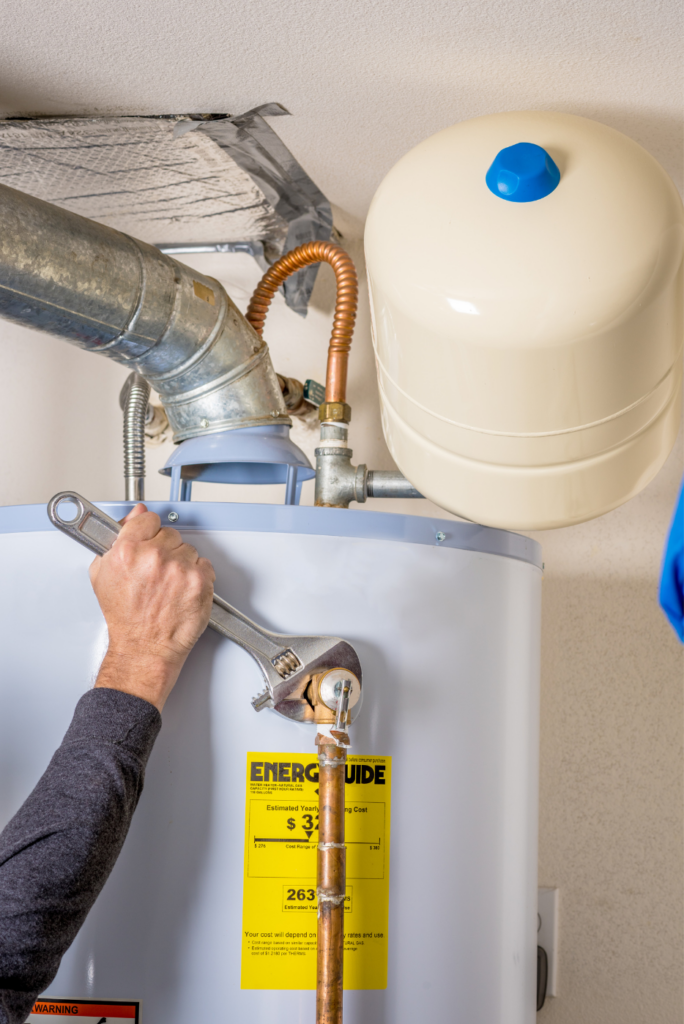This article which follows pertaining to Common Problems with Tank Water Heaters is immensely insightful. Check it out for your own benefit and figure out what you think about it.

Picture beginning your day without your routine warm shower. That already establishes a bad tone for the remainder of your day.
Every home requires a dependable hot water heater, but just a few recognize how to handle one. One very easy way to keep your hot water heater in top shape is to check for mistakes regularly and fix them as quickly as they show up.
Bear in mind to turn off your water heater before sniffing around for mistakes. These are the hot water heater mistakes you are more than likely to run into.
Water also warm or also cool
Every hot water heater has a thermostat that establishes just how warm the water obtains. If the water entering your home is as well warm despite establishing a practical optimum temperature, your thermostat could be faulty.
On the other hand, too cold water might be because of a stopped working thermostat, a damaged circuit, or inappropriate gas flow. As an example, if you use a gas hot water heater with a damaged pilot burner, you would certainly get cold water, even if the thermostat is in best problem. For electrical heating units, a blown fuse might be the wrongdoer.
Lukewarm water
Regardless of just how high you set the thermostat, you will not obtain any type of warm water out of a heater well past its prime. A hot water heater's performance may minimize with time.
You will certainly also get lukewarm water if your pipelines have a cross link. This means that when you switch on a faucet, warm water from the heating system flows in alongside regular, cold water. A cross connection is simple to area. If your warm water taps still pursue closing the hot water heater shutoffs, you have a cross link.
Odd sounds
There are at least five kinds of noises you can hear from a hot water heater, yet one of the most typical interpretation is that it's time for the water heater to retire.
First of all, you should know with the typical seems a water heater makes. An electrical heating unit may appear various from a gas-powered one.
Popping or banging audios generally indicate there is a slab of sediment in your storage tanks, and also it's time to clean it out. On the other hand, whistling or hissing sounds might just be your valves letting some stress off.
Water leaks
Leakages could originate from pipes, water links, shutoffs, or in the worst-case situation, the container itself. In time, water will certainly corrode the storage tank, and also find its way out. If this takes place, you need to replace your hot water heater asap.
However, before your modification your entire container, make certain that all pipes are in place and that each valve functions flawlessly. If you still require aid recognizing a leakage, call your plumber.
Rust-colored water
Rust-colored water means one of your water heater components is worn away. Maybe the anode pole, or the container itself. Your plumber will certainly have the ability to determine which it is.
Inadequate hot water
Water heaters come in many dimensions, relying on your hot water demands. If you lack hot water before every person has actually had a bath, your hot water heater is as well small for your family size. You need to think about installing a bigger water heater container or selecting a tankless water heater, which uses up less area and is a lot more durable.
Discoloured Water
Corrosion is a major reason for unclean or discoloured water. Rust within the water container or a failing anode pole can trigger this discolouration. The anode rod protects the tank from rusting on the inside and need to be examined annual. Without a rod or an appropriately working anode rod, the warm water swiftly corrodes inside the container. Get in touch with a professional hot water heater service technician to identify if changing the anode pole will deal with the problem; otherwise, change your water heater.
Final thought
Preferably, your water heater can last ten years prior to you require a change. Nevertheless, after the 10-year mark, you may experience any one of these faults more routinely. At this point, you need to add a new hot water heater to your budget.
How To Troubleshoot 3 Common Water Heater Problems in Twin Cities
The Water Heater Is Leaking
- A leaky cold water inlet valve
- A loose pipe fitting
- A leaky temperature and pressure relief valve
- A corroded anode rod
- A cracked tank
Turn Off Your Water Heater:
- Shut off your gas water heater by turning the gas valve on the unit to the “OFF” position.
- Shut off your electric water by switching its power off at your electrical panel. Look for a two-pole breaker labeled “water heater” and turn it to the “OFF” position. Move the ball valve connected to the water heater to be perpendicular to the piping at a 90° angle.
Look for the Leak:
Depending on whether the water is coming from the tank's top or bottom, you’ll want to look for the leak in different locations.
If the leak comes from the top of the tank, carefully look for water escaping from the cold water inlet valve or loose pipe fittings. Rusted hot and cold water valves can have loose connections with the tank, with water leaking out of them.
https://mspplumbingheatingair.com/blog/how-to-troubleshoot-3-common-water-heater-problems
I am very serious about Water Heaters Problems and I am assuming you enjoyed the new blog entry. Enjoyed reading our post? Please share it. Help another person find it. I recognize the value of reading our article about Water Heater Repair and Troubleshooting.
Book
Comments on “Fixing Regular Heater Problems”